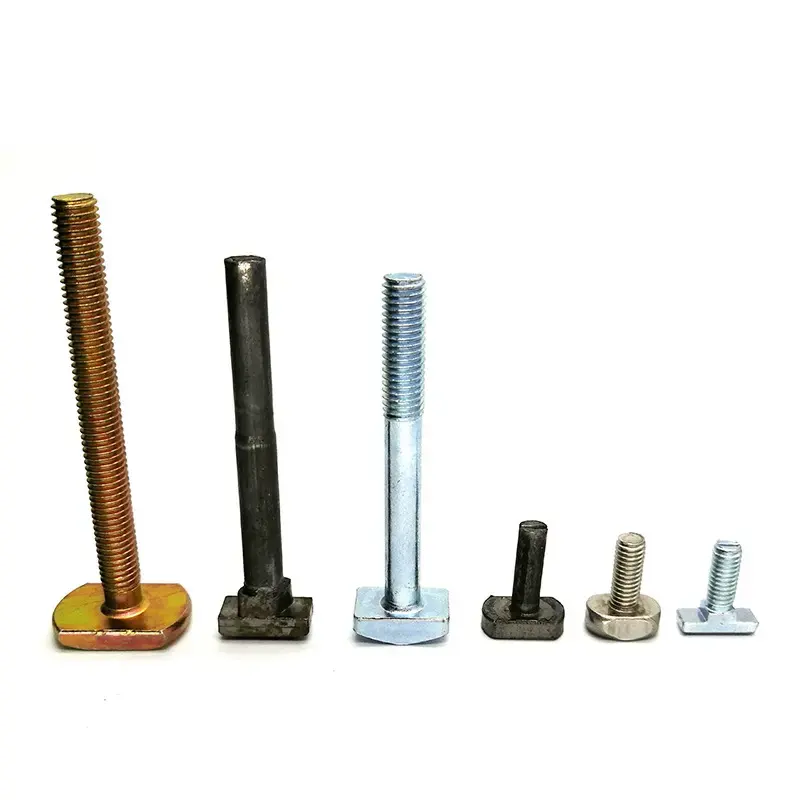T HEAD BOLTS MANUFACTURER IN CHINA
T head bolts, also known as T-bolts, are a type of fastener with a T-shaped head designed to provide a secure and stable connection in various applications. The head of a T-bolt has a flat top with a threaded shank extending downward from the center of the head, resembling the letter “T.” The flat top of the head allows for easy tightening with a wrench or other tools.
T-head bolts are commonly used in structural applications, such as in construction, machinery, and automotive industries, where a strong and reliable connection is required. They are often used in conjunction with T-slotted profiles or T-slotted extrusions, which have channels designed to accommodate the T-shaped heads of these bolts. This design allows for flexibility in attaching components, making them suitable for assembling frames, supports, and other structures.

Specification of T Head Bolt:
| Product name | T Head Bolts |
|---|---|
| Diameter | Metric: M5-M48 Imperial:1/4" to 2" |
| Length | Metric: Up to 800mm Imperial: Up to 30" |
| Head Type | T Head |
| Class | 4.8/6.8/8.8/10.9/12.9 A2-70 A2-80 A4-70 A4-80 |
| Grade | SAE J429 GR.2/5/8 |
| Material | Steel/Stainless steel/Brass/Aluminum |
| Manufacturing Process | wire drawing, cold heading/hot forging, thread rolling, heat treatment, surface treatment |
| Surface treatment | Black Oxide Coating/Zinc Plating (Electroplating)/Hot-Dip Galvanizing/Mechanical Galvanizing/Dacromet Coating/Painting or Powder Coating |
| Application Industry | Construction/Agricultural Machinery/Industrial Structures/Equipment and Machinery/Infrastructure |
Manufacturing quality control of T Head Bolts:
| Control Method | Detail |
|---|---|
| Material Inspection: | Verify the material's composition, heat treatment, and quality upon receipt. Conduct metallurgical analysis to ensure the material properties meet the standards. |
| Process Control: | Implement strict process control measures for heat treatment, machining, threading, and any other manufacturing steps. Maintain consistent process parameters to ensure uniform quality. |
| Inspection Points: | Introduce inspection points at various stages of manufacturing to check for defects, dimensions, and quality. Inspect threading, dimensions, surface finish, and other critical parameters. |
| Sampling and Testing: | Regularly sample products for testing, such as tensile testing, hardness testing, and metallurgical analysis, to ensure they meet the required specifications. |
| Thread Inspection: | Thoroughly inspect threading using proper thread gauges to ensure accurate dimensions and fit with mating components. |
| Traceability: | Implement a traceability system to track each fasteners journey from raw material to final product. This aids in accountability and recalls if necessary. |

